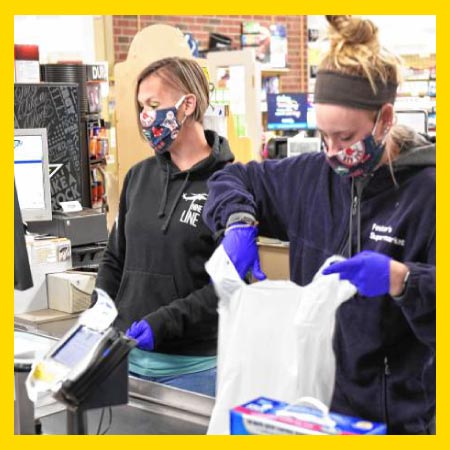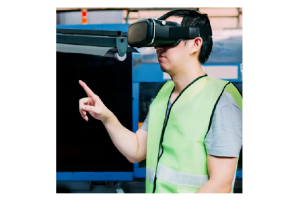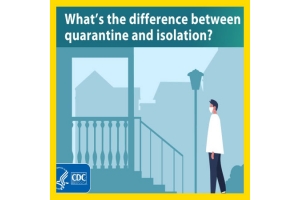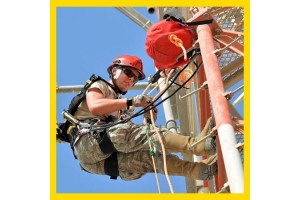Currency
June 21, 2020

Exceptions from respiratory protection regulations allowing the use of surgical masks only apply to healthcare facilities and emergency medical services, the Occupational Safety and Health Administration (OSHA) reminded employers. Other employers must provide respirators, the agency explained in guidance discussing the differences among cloth face coverings, surgical masks, and respirators.
OSHA does not consider surgical masks or cloth face coverings suitable substitutes for respirators in complying with substance-specific standards, such as those for asbestos and silica. The agency encouraged employers to rely on the hierarchy of controls, eliminating or substituting out workplace hazards and using engineering controls, such as ventilation or wetting, and administrative controls like modification of task duration to limit exposures.
Agency guidance granted compliance safety and health officers (CSHOs) enforcement discretion related to respirator use. OSHA acknowledged it may be necessary to extend the use of or allow reuse of certain respirators, use of respirators beyond their manufacturer's recommended shelf life, or use of respirators certified under the standards of other countries or jurisdictions but that have not been evaluated or approved by the National Institute for Occupational Safety and Health (NIOSH).

Guidance from OSHA and the Centers for Disease Control and Prevention (CDC) covering crisis strategies to extend the supply of respirators was intended only for healthcare employers.
Other employers should delay a task if the task poses imminent danger and controls are not feasible and appropriate respirators are not available, according to OSHA. The task should be delayed until feasible control measures are available to prevent exposures or reduce them to levels at or below the agency’s permissible exposure limit (PEL).
Cloth face coverings are worn in public to prevent the wearer from infecting others from COVID-19 or other airborne infections, according to the agency. Worn in public over the nose and mouth, cloth face coverings contain the wearer's potentially infectious respiratory droplets produced when the infected person coughs, sneezes, or talks and can limit the spread of SARS-CoV-2, the virus that causes the coronavirus disease 2019 (COVID-19), to others.
Face coverings may be commercially produced or improvised—bandanas, scarves, or items made from t-shirts or other fabrics.
Face coverings are not considered personal protective equipment (PPE) and likely will not protect the wearer from transmissible infectious agents due to loose fit and lack of seal or inadequate filtration.
Surgical masks typically are cleared by the U.S. Food and Drug Administration as medical devices and usually are worn to contain the wearer's respiratory droplets—healthcare workers, such as surgeons, wear them to avoid contaminating surgical sites, and dentists and dental hygienists wear them to protect patients. During the ongoing pandemic, surgical masks are being used as a stopgap PPE measure for healthcare and emergency medical services workers to protect workers against splashes and sprays containing potentially infectious materials.
However, not all masks that look like surgical masks actually are medical-grade, cleared devices.
Respirators are used to prevent workers from inhaling small particles, including airborne transmissible or aerosolized infectious agents. Respirators like N95 filtering facepiece respirators must be provided and used in accordance with OSHA’s respiratory protection standard (29 CFR 1910.134).
The respiratory protection standard contains requirements for proper training, fit testing, medical evaluations and monitoring, cleaning, and program oversight by a knowledgeable staff member.
OSHA does not consider surgical masks or cloth face coverings suitable substitutes for respirators in complying with substance-specific standards, such as those for asbestos and silica. The agency encouraged employers to rely on the hierarchy of controls, eliminating or substituting out workplace hazards and using engineering controls, such as ventilation or wetting, and administrative controls like modification of task duration to limit exposures.
Agency guidance granted compliance safety and health officers (CSHOs) enforcement discretion related to respirator use. OSHA acknowledged it may be necessary to extend the use of or allow reuse of certain respirators, use of respirators beyond their manufacturer's recommended shelf life, or use of respirators certified under the standards of other countries or jurisdictions but that have not been evaluated or approved by the National Institute for Occupational Safety and Health (NIOSH).

Guidance from OSHA and the Centers for Disease Control and Prevention (CDC) covering crisis strategies to extend the supply of respirators was intended only for healthcare employers.
Other employers should delay a task if the task poses imminent danger and controls are not feasible and appropriate respirators are not available, according to OSHA. The task should be delayed until feasible control measures are available to prevent exposures or reduce them to levels at or below the agency’s permissible exposure limit (PEL).
Face coverings, surgical masks, respirators
Cloth face coverings are worn in public to prevent the wearer from infecting others from COVID-19 or other airborne infections, according to the agency. Worn in public over the nose and mouth, cloth face coverings contain the wearer's potentially infectious respiratory droplets produced when the infected person coughs, sneezes, or talks and can limit the spread of SARS-CoV-2, the virus that causes the coronavirus disease 2019 (COVID-19), to others.
Face coverings may be commercially produced or improvised—bandanas, scarves, or items made from t-shirts or other fabrics.
Face coverings are not considered personal protective equipment (PPE) and likely will not protect the wearer from transmissible infectious agents due to loose fit and lack of seal or inadequate filtration.
Surgical masks typically are cleared by the U.S. Food and Drug Administration as medical devices and usually are worn to contain the wearer's respiratory droplets—healthcare workers, such as surgeons, wear them to avoid contaminating surgical sites, and dentists and dental hygienists wear them to protect patients. During the ongoing pandemic, surgical masks are being used as a stopgap PPE measure for healthcare and emergency medical services workers to protect workers against splashes and sprays containing potentially infectious materials.
However, not all masks that look like surgical masks actually are medical-grade, cleared devices.
Respirators are used to prevent workers from inhaling small particles, including airborne transmissible or aerosolized infectious agents. Respirators like N95 filtering facepiece respirators must be provided and used in accordance with OSHA’s respiratory protection standard (29 CFR 1910.134).
The respiratory protection standard contains requirements for proper training, fit testing, medical evaluations and monitoring, cleaning, and program oversight by a knowledgeable staff member.









